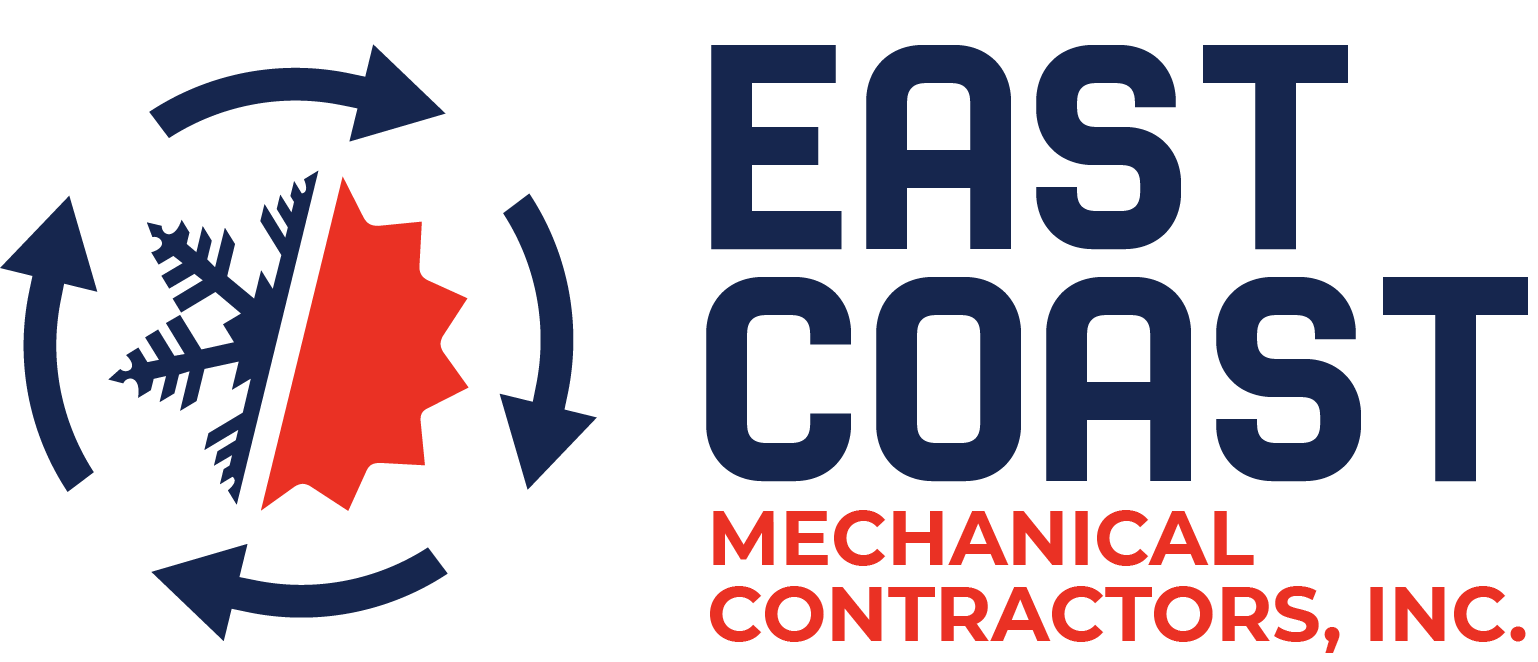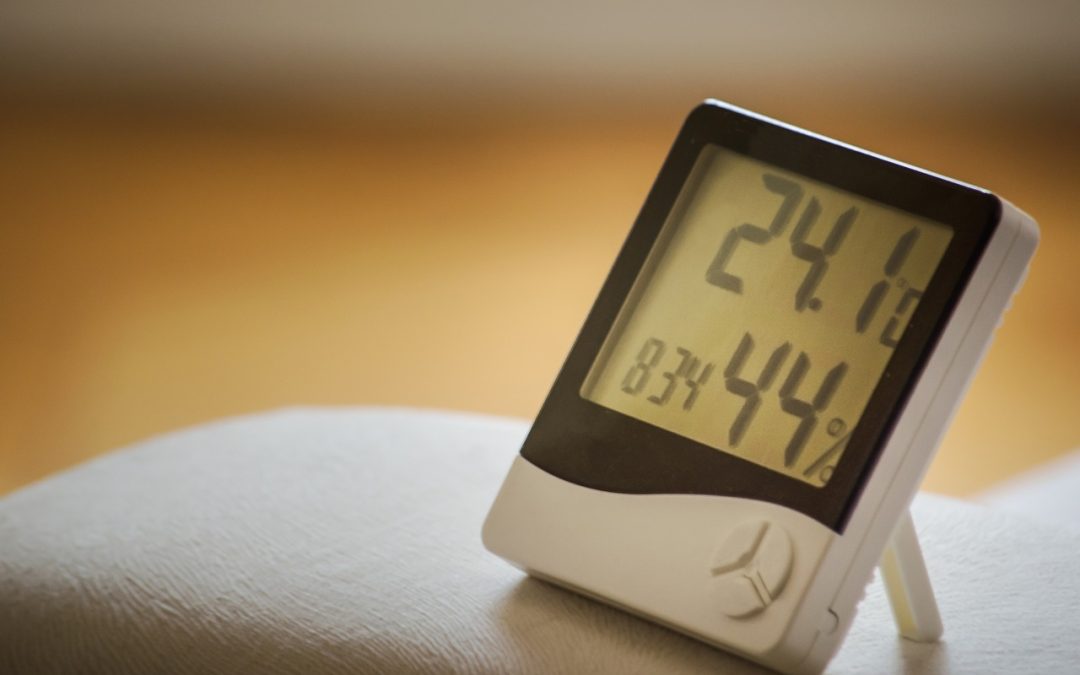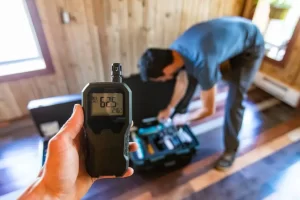When most people think about indoor comfort, their first concern is usually the temperature. But there’s another critical factor that plays a major role in how your home feels and how your HVAC system performs: humidity. In places like New Jersey—where summers can be muggy and winters dry—managing indoor humidity levels is essential for maintaining a comfortable, healthy, and energy-efficient home.
High humidity makes your home feel hotter than it is, causes your HVAC system to work harder, and can even lead to mold growth and structural damage. On the flip side, air that’s too dry can aggravate respiratory issues, dry out skin, and reduce your heating system’s efficiency. Understanding how humidity interacts with your HVAC system can help you take the right steps to optimize performance and comfort all year round.
What Is Indoor Humidity and Why Does It Matter?
Humidity refers to the amount of moisture in the air. It’s measured in relative humidity (RH), expressed as a percentage. Ideal indoor RH levels typically range between 30% and 50%. Levels above or below that range can have significant consequences for both your living environment and your HVAC system.
Too much humidity can cause your home to feel warmer than the actual temperature, leading to overuse of air conditioning and increased energy consumption. Excess moisture can damage wood flooring, walls, and furniture, and also create a breeding ground for mold, dust mites, and other allergens. Conversely, low humidity dries out skin, irritates sinuses, and contributes to static electricity.
In both cases, poorly managed humidity levels can diminish indoor comfort, compromise air quality, and place unnecessary strain on your HVAC equipment. Managing humidity properly also reduces the risk of material degradation and preserves the structural integrity of your home. It’s a foundational aspect of creating a healthy, livable indoor environment.
Effects of High Humidity on Your Home
When humidity levels are too high, moisture accumulates throughout the home—even in places you might not see. Condensation forms on windows, walls may feel damp to the touch, and a musty odor can develop. Over time, this moisture can warp wood, damage drywall, and create the ideal environment for mold and mildew.
High humidity also affects indoor air quality. Allergens thrive in moist environments, aggravating asthma and allergy symptoms. The extra moisture can also attract pests such as cockroaches and termites, who prefer damp areas.
Excess moisture can creep into insulation, reducing its effectiveness and leading to higher energy costs. It can also cause paint to bubble or peel, damage electronics, and encourage bacterial growth in high-moisture zones like basements and bathrooms. Maintaining ideal humidity levels can help preserve your home’s finishes, prevent infestations, and safeguard your family’s health.
From a comfort perspective, elevated humidity reduces your body’s natural ability to cool itself through sweating, making you feel hot and sticky even at lower temperatures. This discomfort often prompts homeowners to lower the thermostat, which increases the load on the air conditioning system.
How High Humidity Affects Your HVAC System
When your HVAC system is forced to cool both temperature and humidity, it consumes more energy and operates less efficiently. Air conditioners are designed to remove some moisture from the air as part of the cooling process, but they are not dehumidifiers. If your home has consistently high humidity levels, your AC may run longer and still fail to achieve the desired comfort level.
This extended runtime puts extra wear and tear on the unit’s components, including the compressor and coils. Over time, the system becomes more prone to breakdowns and may require more frequent repairs. Your system may also short-cycle, turning on and off rapidly, which further reduces efficiency and increases the risk of premature failure.
Additionally, high humidity in the ductwork can promote the growth of microbial contaminants that get circulated through your home. These microorganisms can affect respiratory health, especially for individuals with preexisting conditions. Controlling humidity reduces the strain on HVAC components and also enhances indoor air quality, creating a safer and more efficient system overall.
Effects of Low Humidity on Your Home and HVAC
While high humidity gets most of the attention, low humidity—especially during New Jersey’s cold winters—can be equally problematic. Dry air leads to cracked wood floors, peeling paint, and furniture damage. Static electricity becomes a daily nuisance, and your skin, eyes, and throat may feel constantly irritated.
Low humidity can also reduce heating efficiency. Dry air feels cooler than moist air, so you might be tempted to raise the thermostat. This not only increases energy usage but also accelerates wear on your furnace or heat pump. Additionally, combustion-based heating systems can dry out the air even further, creating a vicious cycle of discomfort and energy waste.
Your home’s structural components, such as wood framing and cabinetry, can shrink or crack in overly dry environments. Over time, this can result in creaky floors, misaligned doors, or gaps between molding and walls. Low humidity levels also affect how airborne particles behave, often leading to more dust circulating throughout the home.
The lack of moisture also affects the operation of humidifiers and air purifiers, which may require additional maintenance or upgrades to work effectively in these conditions.
How to Manage Indoor Humidity Effectively
Proper humidity control starts with monitoring. A basic hygrometer or a smart thermostat with built-in humidity sensors can help you track indoor levels. Once you know your home’s baseline, you can begin implementing solutions based on the season and specific needs.
-
Dehumidifiers
Whole-house dehumidifiers work in tandem with your HVAC system to remove excess moisture from the air during warmer months. Unlike portable units, these are installed into your ductwork and automatically adjust humidity levels based on your system’s runtime. They’re especially useful in homes with finished basements or rooms that feel damp or sticky.
-
Humidifiers
In winter, whole-house humidifiers add moisture back into the air, improving comfort and reducing stress on your heating system. These systems can be attached directly to your furnace and are ideal for dry, cold climates. They also help protect wooden floors, furniture, and musical instruments from drying out and cracking.
-
Ventilation Upgrades
Proper ventilation in bathrooms, kitchens, and attics helps remove excess moisture at the source. Consider adding energy recovery ventilators (ERVs) or heat recovery ventilators (HRVs) for more balanced indoor air. These systems exchange stale indoor air with fresh outdoor air while maintaining humidity and temperature levels.
-
HVAC System Optimization
Systems with variable-speed fans and smart thermostats can help regulate both temperature and humidity. These systems offer better airflow and longer, gentler cycles, which are more effective at moisture removal. Pairing these technologies with zoning systems ensures every area of your home maintains its ideal comfort level.
Why Professional HVAC Care Matters for Humidity Control
Effective humidity control requires more than just buying new equipment—it demands a whole-home approach. That’s where the expertise of ECMC HVAC makes a difference. Our technicians evaluate your current HVAC system, ductwork, insulation, and ventilation to pinpoint the root causes of humidity imbalance.
Whether it’s installing a dehumidifier, optimizing airflow, or upgrading to a variable-speed HVAC system, we tailor solutions to your home’s unique needs. We also offer maintenance services that keep your system clean and running efficiently, which is essential for humidity management.
Humidity control isn’t a luxury—it’s a necessity. With improper levels, you’re not just risking discomfort; you’re also potentially exposing your home to avoidable damage. Let ECMC HVAC be your partner in keeping every element of your HVAC system aligned with your home’s humidity needs.
With ECMC HVAC by your side, you can enjoy year-round comfort, improved air quality, and a healthier, more energy-efficient home.
Let ECMC HVAC Help You Create the Ideal Indoor Climate
Don’t let imbalanced humidity levels compromise your comfort or damage your home. Whether you’re battling muggy summers or dry winters, ECMC HVAC provides customized solutions that target your home’s specific needs. From system upgrades to expert maintenance and indoor air quality improvements, we’re here to make your home healthier and more energy-efficient year-round.
Our experienced team serves homeowners across New Jersey with trusted, high-quality HVAC services designed for maximum performance and peace of mind. Let us assess your current setup and recommend the best ways to control humidity and improve comfort.
Contact ECMC HVAC Today
📍 Address: 80 Leonardville Rd, Belford, NJ 07718
📞 Phone: (732) 936-9850
🌐 Website: https://ecmchvac.com
📧 Email: info@ecmchvac.com
🕒 Hours: Monday – Friday | 8:00 AM – 5:00 PM
Ready to take control of your home’s humidity? Contact ECMC HVAC for expert solutions tailored to your NJ home.



